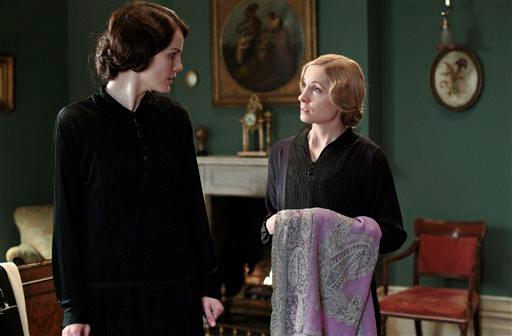Every Sunday evening, I find myself eagerly anticipating the newest edition of the amazingly popular series from “across the pond.” I’m pretty sure that I’m not alone either, although I think a lot of folks out there—the ones who aren’t sufficiently entranced—mistakenly believe that we’re all just fantasizing about being ridiculously rich and powerful.
I’ve been giving it some thought recently, and to be honest, the idea of having everything one wants—and precisely when one wants it—sounds pretty good to this raised-on-a-farm girl. After a bit more thought, however, I’ve come to believe that there’s more to it than just that.
For one thing, a good part of the series is built around the stories of the house staff, who are, after all, not rich and/or powerful, and generally have nothing more than a roof over their heads and a job that is at least sun-up to sunset, and sometimes a lot more.

And, on top of that, those parts of the story that are more about the staff are oftentimes more interesting and moving than the stories of the folks “upstairs.”
Of course, that’s not to say that the lords and ladies aren’t fascinating in their own right, and frequently both staff and family are experiencing the same tragedies and triumphs at the same time—although, from their own perspectives, of course. This does make it doubly interesting, in that regard, of course.
So, what is the “magic” of “Downton Abbey”?
Part of it, I believe, is the relative simplicity of the times; although there were many terrible things happening during that time period, people were relatively calmer and better behaved. Restraint was considered a necessary virtue, and the code of the English gentleman required a certain civility that transcended virtually any kind of slight or insult.
Because the likelihood of harsh words—not to mention, actions—was so small, the repercussions were mostly non-existent; reconciliation was much more easily an expedient accomplishment. Long-term grudges and feuds were largely unheard of.

Is that it, then? Is it really just as simple as that? Are we truly just enthralled by a cinematic representation of simpler times? Well, let’s see . . .
Over the past few months, our world has watched as children have killed other children, inexplicably and unpredictably. Mass murderers—those people who open fire in public places—have become terrifyingly common.
We’ve also seen terrorists do their best to create fear in our hearts and minds, and even if they were largely unsuccessful in killing that many of us, we know that they are not very likely to stop trying.
And, it’s no secret that our attempts—our years of attempts—to create a more peaceful Middle East as well as eradicate terrorist groups, have basically failed, and we’re just relieved that our soldiers are coming home. We don’t really want to think about what will happen to those places they’re leaving when they’re not there keeping some semblance of peace.
And then there’s the situation in West Virginia—in a populated area, precious water has been polluted to a degree that none of us even want to consider, even though we are all very much aware that many toxic chemicals are near our water supplies and we suspect that this kind of accident could pretty much happen to any of us at any time.
In addition to the human complications, Mother Nature has made it clear that she is not under our control; much less can we hope to predict her fickle maneuvering. This winter has been one for the record books—and it’s not over yet. Drought has turned some areas into giant tinder boxes, ready to catch fire from the smallest of sources. Some areas are burning constantly, and water shortages have become critical for some. Livestock cannot be fed or watered properly; irrigation is severely limited. Our food supply—meat and produce—are bound to be affected in the near future.
Perhaps most frightening of all, we are faced with the very real possibility of pandemic illnesses, like the flu, which, because of our mass transit systems, can travel with all ease to virtually every corner of the globe in just a few days’ time.
These, I think, are the real reasons why many of us are so drawn to a series like Downton Abbey. Unlike the current wave of crime dramas, nonsensical comedies, evening soaps, and so-called reality TV, it allows us to escape completely, if only for an hour, the seemingly insurmountable uncertainties of the reality we’re actually living in every minute of every day. There, in that castle-like mansion, whether in the kitchen or the drawing room, whether we’re preparing the dinner or dressing for it, we can be safe, in that time, in that place, from a world that has truly become too frightening and unpredictable.


